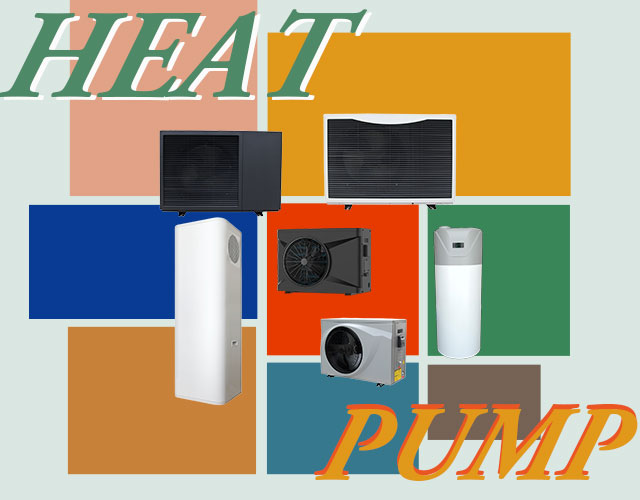As the world’s climate patterns continue to change, so do our needs for
indoor temperature control. Air conditioning has become an essential part of
daily life for many people. However, it is now clear that traditional air
conditioning units are not the most efficient or environmentally-friendly option
available, leading many distributors to consider a new trend: heat pumps. Heat
pumps work by using a small amount of energy to transfer heat from one space to
another, making them an energy-efficient alternative to traditional air
conditioning. As more distributors consider getting into the heat pump business,
it’s worth diving into the benefits, challenges, and potential opportunities for
this new trend.
There are many pros and cons to domestic air source heat pumps, and it’s
important to be aware of them and avoid the downsides if possible. A summary of
the air source heat pump pros and cons can be seen below.

Advantages of air source heat pumps
There are numerous benefits to using heat pumps, but here are the most
important advantages of purchasing an air source heat pump are the
following:
Low Carbon Footprint: ASHPs are a low carbon emissions heating option, as
they use the outside air to heat or cool homes at a highly efficient rate. For
every 3-4 units of energy produced, only 1 unit of electricity is used.
Money Saving: Switching to air source heat pumps can reduce your annual fuel
bill by as much as £780, with larger savings for those switching from electric,
coal, or LPG systems.
Boiler Upgrade Scheme: The £5,000 voucher from the Boiler Upgrade Scheme is
available for the installation of air source heat pumps, ground source heat
pumps, or biomass boilers. The scheme aims to encourage the adoption of low
carbon heating technologies and runs until April 2025.
Heating and Cooling: Depending on the model, ASHPs can be used for both
heating in the winter and cooling in the summer.
Space and Hot Water Heating: An ASHP can also heat water if the flow
temperature is around 55°C. If it’s only for space heating, the flow temperature
will be 35°C.
High SCOP: Air source heat pumps have a high seasonal coefficient of
performance (SCOP), making them efficient in both winter and summer, with a
typical COP of 3.2 when the outside temperature is above 7°C.
Easy Installation: Air source heat pumps can be installed in as little as 2
days, without the need for digging like ground source heat pumps. They are
suitable for both retrofits and new builds and can be cost-effective when
combined with other building work.
Low Maintenance: Air source heat pumps require little maintenance. It should
have annual servicing by a qualified heating engineer. While the occasional
cleaning of filters and checking for leaks and refrigerant levels can be done by
the homeowner.
Long Lifespan: Air source heat pumps have a long lifespan, with proper
maintenance, they can operate for up to 20 years and most have 5-year
warranties. Some models are even capable of working efficiently for close to 25
years.
No Fuel Storage: No fuel storage is needed with ASHPs, because the fuel used
is the outside air. That means no additional fees for fuel deliveries like with
biomass or oil-fired boilers.

Disadvantages of air source heat pumps
While air source heat pumps are known for their versatility and
affordability, there are some disadvantages you should be aware of. These are
the main air source heat pump disadvantages:
Lower heat supply compared to boilers: Air source heat pumps have a lower
heat supply compared to oil and natural gas boilers. So larger heat-emitting
surfaces (like larger radiators) might be required for the same amount of space
heating.
Extra spending to install underfloor heating: Air source heat pumps are
commonly used with underfloor heating to make the most of the system, which can
lead to higher installation costs if you do not already have an underfloor
heating system in place.
Need for a well-insulated home: An ASHP requires a well-insulated home to
work effectively, similar to any other heating system.
Lower efficiency below 0°C: Air source heat pumps lose efficiency below 0°C
because they rely on outside air, and the overall heat output decreases as the
temperature drops.
Lower savings compared to cheap mains gas: The difference between the cost of
mains gas and electricity (for powering an air source heat pump) might not be
significant if your mains gas is cheap. However, the future of the UK is
focusing on increasing heat pump installations significantly and you can expect
to have more low-carbon incentives to make the switch.
Noisy operation: Air source heat pumps can be somewhat noisy when they are
running, comparable to a regular air conditioner or light to heavy rain. But
advancements are being made to reduce the noise levels.

Many of the downsides above can be prevented by having professional
installers plan and install the air source heat pump system. At SMAD, we are
committed to providing exceptional service to our customers, no matter where
they are located. In order to better serve our distributors and customers
worldwide, we have recently invested in building overseas warehouses and hiring
service staff in key locations. This means that our customers can enjoy faster
delivery times, more efficient installations, and access to high-quality
after-sale service directly from local experts. Whether you are a distributor
looking to expand your business overseas or a customer in need of reliable
installation and service, our team is ready and able to support you every step
of the way.


